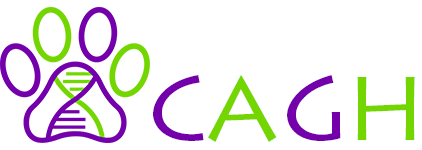Authors Louise Burmeister (1), Ellen Schofield (1), Rebekkah Hitti (1), Chris Jenkins (1), Bryan McLaughlin (1), James Oliver (1), Louise Pettitt (1), Sally Ricketts (1) and Cathryn Mellersh (1)
Affiliations 1. Kennel Club Genetics Centre, Animal Health Trust, United Kingdom
Presentation Type Poster
Abstract
The advent of whole genome sequencing (WGS) has promised to revolutionise genetic research, and the rapid fall in per-sample costs in recent years has made the revolution an affordable reality for geneticists. The technology is especially useful for the study of simple Mendelian conditions where disease-causing mutations have the potential to be identified from the WGS of a single case. However, when comparing a typical canine genome with the reference sequence (CanFam3.1) or a control genome, at least 2-3 million variants will typically be identified. Many of these variants are likely common polymorphisms which could be excluded by comparing with multiple control genomes. We devised the Give a Dog a Genome (GDG) project to build a resource of canine genetic variants across the genome using WGS; currently projected to contain 90 genomes from 78 breeds, and investigate genetic diseases in at least 69 breeds. We used a crowd-funding approach, with the costs of the project being shared between multiple stakeholders. To date (two years after GDG was launched), 74 samples from 69 breeds have been sequenced comprising 62 dogs affected with a suspected genetic condition (27 conditions in total) and 12 apparently healthy older dogs. The GDG variant bank has been used to validate several disease-associated mutations and DNA tests have been developed to improve the health and wellbeing of dogs. All of the WGS data generated through GDG will be shared with the Dog Biomedical Variant Database Consortium (DBVDC), and specific sequences will be shared with at least 20 scientists from Europe and the USA to contribute to their research.
